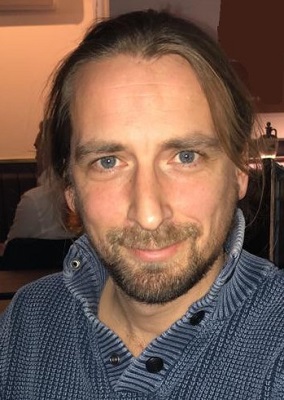Interviewing Maurice Duits
Maurice has recently been appointed as a professor in mathematics. We interviewed him, to get an insight of the new role as well as his professional background and career plans.

Hello Maurice, tell us a little bit about you, where you come from, your academic studies etc?
I grew up in the Netherlands and obtained my master’s degree in Applied Mathematics at TUEindhoven in 2004. Then I moved to Belgium and received my PhD degree in Mathematics at the KULeuven in 2008. After that, I was Taussky/Todd instructor at Caltech in the US. In 2011 I decided to move to Stockholm to join a strong research group in my research area and have been part of that group ever since.
Taking up a new position is a challenge on its own. How has your time as a professor been so far, any significant changes compared to your previous position as an associate professor?
My promotion has been a bit too recent to really notice a difference in daily duties. For now, I mostly feel happy and proud to have achieved this milestone. I also feel that a role as professor comes with a great responsibility and I am very motivated to meet this with much enthusiasm! But to be very honest, the biggest difference so far is the peace of mind. A big part of the promotion process at KTH is very bureaucratic and, in addition to an excellent researcher and teacher, one has to be sure to check all the required boxes and you always wonder if you miss something (especially if some boxes are invisible as recent events have shown). This even encourages strategic thinking which is in itself also very distracting. It feels good to finally be able to solely concentrate on core duties.
What have been the biggest challenges?
In my opinion the biggest challenge to an academic career is the great pressure and it is not always easy to deal with this. Now I am not only talking about the “publish or perish” cliché. Of course, to be able to pursue a career in academia you will have to prove to be a good researcher and your progress is constantly evaluated. But a young researcher is expected to be much more than that. One is asked to build a large portfolio with research, educational and leadership skills, and all of them are constantly evaluated. Promotion processes, docent applications, and such, are getting longer and more time consuming. New elements in these processes are constantly added and they are seldomly simplified. So I actually expect that my new role will have much fewer challenges than I had as a young researcher.
Tell us about your research, what makes it important?
In my research I study the behavior of large random systems and see if there are patterns that emerge. Often these patterns are universal and can be found in many different areas, ranging from very fundamental mathematics and physics, to down-to-earth and daily life situations. By finding and analyzing these patterns in mathematical models that are simple enough we can learn a great deal about them.
What are the biggest challenges your research combats?
The questions in my field are often easy to state but difficult to solve. It is often possible to explain the models that I study to people that know little about mathematics. But then, to study these models one needs to develop new and deep mathematical tools. There are several important models in our field that we still know very little about. It is very exciting to combat these challenges!
Does your work have practical applications, if so, what would these be?
As mentioned, my research is rather fundamental but there are in fact applications. I personally choose to let my efforts be driven by curiosity and leave the question of possible applications to others (who are likely much better in this than I am). One should not forget that fundamental or basic sciences have an important role to play even for engineering sciences. History has shown time and again, that theoretical advances can ultimately lead to profound applications.
Why did you choose your field of research in particular?
I remember the first time I came into contact with my research field was with a seemingly simple question “How do the eigenvalues of randomly chosen Hermitian large matrix behave?”. I remember that, being a naïve student, I found the question rather dull and uninspiring. Until I started learning more about the behavior of these eigenvalues of large matrices and found the patterns that they obey magical! My excitement got even more triggered by the fact that these patterns can be explained by beautiful mathematics. I quickly realized that this is the type of mathematics that I like and thrive in.
Has your work been affected by the pandemic, and if yes, are you looking forward to working from the office again?
Yes, the pandemic had a great impact on my life and surely on my academic life, as is true for all of us. I feel more and more exhausted by online interaction and often experience headaches after days of long and frequent zoom meetings. In the beginning there was some fun in trying out new tools, but, ultimately, I feel it is rather uninspiring to teach or meet online. Sometimes I read comments that the pandemic will change our practices fundamentally in the future and that there have been great developments. I find that amusing since most of us are clearly exhausted by the chaos and are simply longing to get back to the normal situation. Perhaps certain elements will be kept and further developed, but I think (and hope) that the overall change will be very minor.
Text: Elina Charatsidou
